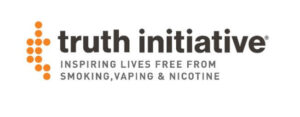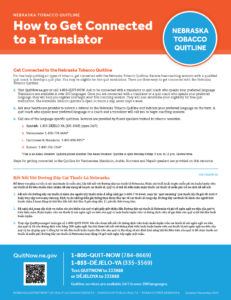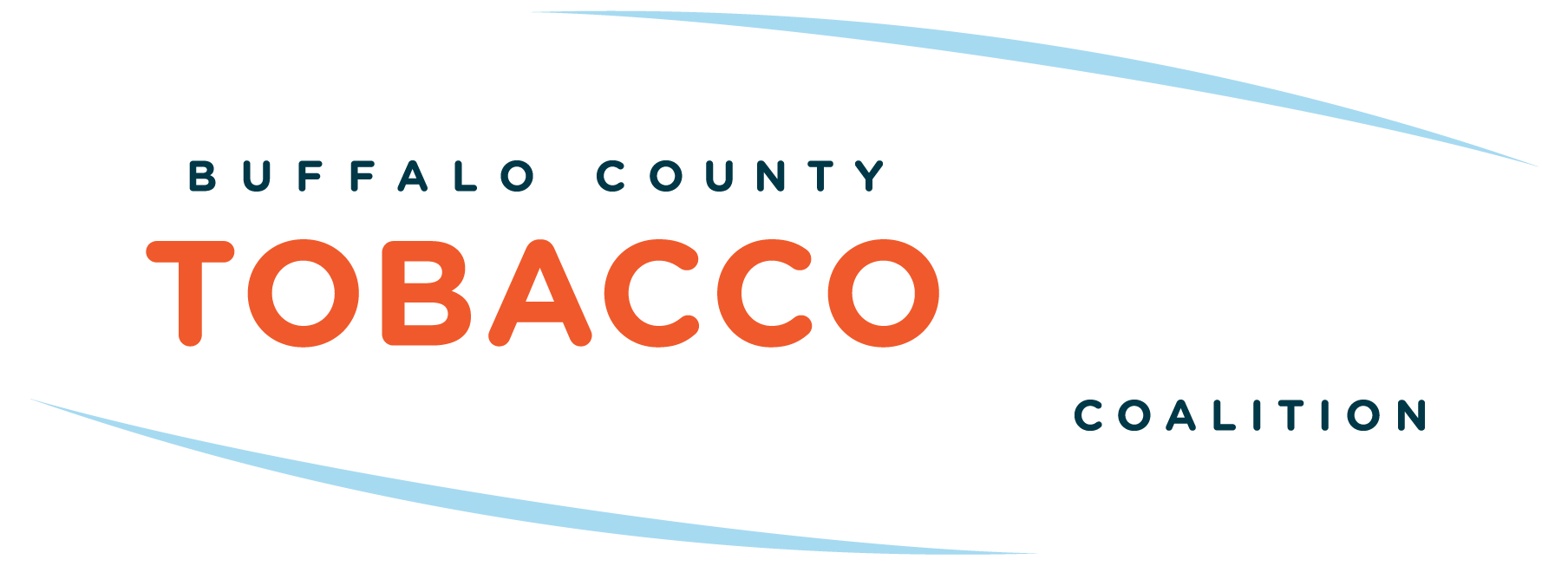
On March 8, 2024, the U.S. Department of Health and Human Services unveiled a new framework to accelerate smoking cessation and reduce smoking- and cessation-related disparities. This action is part of a broader Department-wide effort to advance the Biden Cancer Moonshot goal of reducing the death rate from cancer by at least half over 25 years.
The HHS Framework to Support and Accelerate Smoking Cessation provides a unifying vision and set of common goals to help drive progress towards cessation, especially in populations and communities that experience smoking- and cessation-related disparities. It is focused specifically on supporting and accelerating the cessation of combusted tobacco products, including cigarettes, cigars, little cigars, and cigarillos among people of all ages.
The Framework is organized around six goals that serve as a foundation for long-standing HHS efforts to support and promote smoking cessation. These goals will guide future HHS actions, building on the work that is underway to achieve the Framework vision. The Framework’s six goals are:
The United States Environmental Protection Agency and U.S. Federal Drug Administration’s Emerging Technology Program collaborated on a fact sheet about safe disposal of e-cigarettes. This factsheet is for individual disposal of e-cigarettes.
On February 23, 2024, the Center for Disease Control and Prevention’s Office on Smoking and Health updated the Menthol Fact Sheets for all 50 states and the District of Columbia. These updates include more recent data regarding:
The Nebraska state page had an additional change to correct an error regarding the percentage of adults in the general population who currently smoke and usually use menthol cigarettes.
 SelfMade Health Network released a new Commerical Tobacco Cessation Messaging Toolkit. This user-friendly toolkit is designed to share evidence-based commercial tobacco cessation resources, including resources to address social determinants of health, and assist members of multi-disciplinary healthcare teams with supporting patients during their tobacco cessation journeys.
SelfMade Health Network released a new Commerical Tobacco Cessation Messaging Toolkit. This user-friendly toolkit is designed to share evidence-based commercial tobacco cessation resources, including resources to address social determinants of health, and assist members of multi-disciplinary healthcare teams with supporting patients during their tobacco cessation journeys.
 No Limits Youth Leadership Team
No Limits Youth Leadership Team
No Limits will be building a youth leadership team made up of teens from across the state who are dedicated to fighting Big Tobacco. They will be the guiding force that pushes the movement forward by empowering other Nebraska youth. Would you or someone you know be a good fit? Look for the application and more information on the No Limits website, newsletters, or email Ranae Aspen at ranae.aspen@nebraska.gov.
Mini-Grant Awardee Deadlines
When the event and public service announcement/promotion video clip/social media posts are completed, fill out the evaluation/success story form by April 15, 2024.
All mini-grant funds must be spent by April 15th, 2024, and the request for reimbursement must be submitted no later than June 1, 2024. Use the reimbursement form to record expenses and the NDE 28-003 form as part of the reimbursement submission.
Newsletter
Want to subscribe to No Limits Nebraska’s quarterly newsletters? Email Ranae Aspen at ranae.aspen@nebraska.gov.

U.S. college students reporting a mental illness diagnosis within the past year had a 33% higher risk of currently using e-cigarettes compared to those without past-year mental health conditions, according to research from Truth Initiative published in the American Journal of Health Promotion.
The strongest associations between past year mental illness diagnosis and current e-cigarette use were found for schizophrenia, substance use/addiction, bipolar disorder, bulimia, and ADHD. Although this study finds a strong association between mental health illness diagnosis and e-cigarette use among college students, it does not find that one causes the other. Findings suggest that efforts to improve mental health among young people could also help to curb or reduce e-cigarette use, according to researchers.
EMAIL KYLA.SCOTT@NEBRASKA.GOV TO REGISTER

John, age 61, smoked his first cigarette at the age of 8. By the time he was 16, he was buying his own cigarettes and smoking daily.
John smoked two to three packs of cigarettes a day. In his late 20s, John promised his father that he would quit smoking. John tried different strategies to end his nicotine addiction, such as acupuncture, hypnosis, and going cold turkey. He also tried nicotine patches. Nothing John tried worked for him. John could never go a full day without smoking a cigarette.
After his father died, John was even more motivated to quit, but he still struggled. Then he found a doctor who had quit smoking. She understood nicotine addiction and the difficulty of quitting. She prescribed two quit-smoking medicines, including a nicotine oral inhaler, and recommended that John get counseling to help him through the process. She also suggested that he set a quit date. At age 38, after more than 20 years of smoking, John fulfilled his promise to his father and smoked his last cigarette on his quit date, May 5.
Quitting smoking has given John an immense feeling of freedom. His advice to others is simple: “If I can quit smoking, you can too. You just need to find the approach that works for you.”

Tobacco Cessation and Behavioral Health Workgroup
April 29, 2024 | 2:00 – 3:30 p.m. CT
During these quarterly virtual meetings, individuals will focus on the workgroup’s mission to collaborate, establish projects for the workgroup, share resources and align goals across the state of Nebraska, with the aim of increasing tobacco cessation programming in behavioral health services.
EMAIL KYLA.SCOTT@NEBRASKA.GOV TO REGISTER
SAVE THE DATE: Nebraska State Tobacco Control Conference
May 15, 2024 | 9:00 a.m. – 4:30 p.m.
Tobacco Free Nebraska is hosting an in-person state tobacco control conference. Location TBA.
No Menthol Sunday
May 19, 2024
The Center for Black Health & Equity’s No Menthol Sunday is an annual opportunity for faith communities to address the detrimental impact tobacco is having on African American communities. Each year, faith leaders are encouraged to dedicate this day to educating congregants about smoking, vaping and the role of menthol and other flavors.
Nebraska Tobacco Disparities Partnership Meeting
June 26, 2024 | 2:30-3:30 p.m. CT
The Nebraska Tobacco Disparities Partnership is a vibrant network of people and organizations from across the state that focuses on reducing tobacco-related disparities among Nebraska’s diverse populations. The Nebraska Tobacco Disparities Partnership works to provide the information, resources and support that these populations need to prevent youth from using tobacco, and to help current tobacco users quit.
Michael Scott, Program Manager of The Center for Black Health and Equity, will present on communicating health disparities effectively.
EMAIL RENEE.WADEMAN@NEBRASKA.GOV TO REGISTER
National Tribal Tobacco Conference
June 27-28, 2024 | Minneapolis, MN
This conference will address the traditional uses of tobacco and commercial tobacco impact in American Indian and Alaska Native (AI/AN) communities across the United States, and will emphasize AI/AN persons returning to a healthy relationship with tobacco, the importance of creating health equity, and provide an opportunity for networking and collaboration.
SAVE THE DATE: National Conference on Tobacco or Health
Aug. 26-28, 2025 | Chicago, Illinois
The National Conference on Tobacco or Health is one of the largest, long-standing gatherings for top United States tobacco control professionals.
This convening attracts a diversity of attendees committed to best practices and policies to reduce tobacco use, which is the leading preventable cause of disease and death in the United States.
American Nonsmokers’ Rights Foundation Clearing the Air Institute
Oct. 14-17, 2024 | Philadelphia, PA
Clearing the Air® Institute focuses on smoke-free air and gaps in protections, and features specific information on smoke-free workplaces, secondhand smoke and e-cigarette aerosol, multi-unit housing, marijuana, casinos, menthol and flavors, colleges, and more.
Nebraska DHHS Division of Public Health, Office of Health Disparities: Eliminating Health Disparities Conference
Oct. 16-17, 2024 | York, NE
The Eliminating Health Disparities in Nebraska conference will share successful programming and services which address and reduce health disparities in Nebraska in the areas of physical/mental health, social/spiritual well-being, community conditions, root causes, and organization transformation skills.
Tobacco Disparities Reframing Project
OPEN NOW | Virtual
The CDC Office on Smoking and Health’s training resource to help the tobacco control community use new evidence-based framing and messaging.
 This online order form provides the option to preview, order, download and print free and updated promotional resources such as brochures, window clings, magnets, information sheets and more with information about the Nebraska Tobacco Quitline. Most materials are available in both Spanish and English. Please order or use these free materials as needed.
This online order form provides the option to preview, order, download and print free and updated promotional resources such as brochures, window clings, magnets, information sheets and more with information about the Nebraska Tobacco Quitline. Most materials are available in both Spanish and English. Please order or use these free materials as needed.
April
Accredited courses are now available online through the Nebraska Tobacco Quitline, for providers looking to receive CME, CNE or CPE credits. Every year providers in Nebraska support patients quitting tobacco by referring them to the Quitline. The courses offered help providers discuss how cessation can increase quit success and reduce the risks associated with tobacco use, including vaping. Several courses are offered and cover a variety of topics, such as Tobacco Use Disparities for People with Behavioral Health Conditions, Myths About Quitting, Vaping and E-Cigarette Devices, and more.
Additionally, providers can refer patients using the new online web referral option or the updated fax referral form. Go online to access tools, resources, and education modules, plus the web and fax referrals for providers ready to help patients quit, at QuitNow.ne.gov/providers.
 Call 1-800-QUIT-NOW or visit QuitNow.ne.gov to reach a trained quit coach, get access to free quit-smoking medication, and make a plan to quit tobacco for good.
Call 1-800-QUIT-NOW or visit QuitNow.ne.gov to reach a trained quit coach, get access to free quit-smoking medication, and make a plan to quit tobacco for good.

Comments